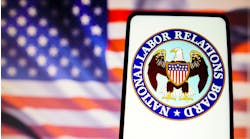Recent research finds some real surprises in how Millennials view themselves and their work, and this new knowledge could help employers manage them more effectively.
Principals at Deloitte Greenhouse Experience, the international consulting firm’s human resources management consulting and training unit, have developed a way of studying generations that they call Business Chemistry, described as a data-driven approach to understanding different work styles of Baby Boomers, Millennials and Gen Xers.
Based on research and surveys involving nearly 20,000 workers who are part of the three generations studied over the past four years, the Business Chemistry model is comprised of patterns of work preferences that define four different kinds of employee personalities. They are:
Pioneers, who are risk-takers described as being outgoing, detail-averse, spontaneous, risk-seeking, adaptable and imaginative.
Opposite to Pioneers are Guardians, defined as detail-oriented pragmatists who are considered methodical, reserved, detail-oriented, practical, structured and loyal.
Drivers are experimental competitors who are quantitative, logical, focused, competitive, experimental and deeply curious.
Integrators are Drivers’ opposites, seen as empathic diplomats who exhibit qualities that characterize good team players and who tend to be traditional, relationship-oriented dreamers, intrinsically motivated and non-confrontational.
The research shows that close to 60% of Millennials identify with two of the four primary Business Chemistry types. Guardians, detail-oriented pragmatists, comprise 32%; while Drivers, who focus on outcomes and goals, make up 27%.
Only 23% of the Millennials in the sample are Integrators, the type that values connection and draws teams together, and 18% represent Pioneers, the most blue-sky thinking, spontaneous type.
Age Cohort Comparisons
In contrast, the study reveals that Baby Boomers are represented by Millennials' opposing Business Chemistry types: the Pioneer and the Integrator. These are the two most nonlinear, ambiguity-tolerant and networked work styles. In addition, 29% of Baby Boomers identify as Pioneer, with an equal number identifying as Integrator, while 22% identify as Driver and only 20% as Guardian.
“Intriguingly, Millennials, the cohort often referred to as ‘generation me,’ are most likely to identify with the pragmatic, detail-oriented Guardian, and least likely to identify with the outgoing, spontaneous and imaginative Pioneer,” notes Selena Rezvani, who led the study for the Deloitte Greenhouse Experience group.
She points out that some of the most common stereotypes associated with Millennials—they are wide-eyed idealists and networked social creatures—are at odds with actual characteristics of most people included in this group. “Improving generational intelligence by understanding the work preferences of Millennials, the largest share of the labor force today, may be the key to unlocking their commitment and engagement,” Rezvani says.
Deloitte’s research also explored whether there are pronounced behavioral traits that inform their approach to work shared among Millennials regardless of their Business Chemistry type. Significant differences were found in several traits, one being tolerance for ambiguity. Millennials are significantly less likely than their older counterparts to be comfortable not knowing all the answers.
In addition, Millennials are more likely to take time with decisions; enjoy planning details; are less trusting of others; prefer to have all of the relevant information when beginning a project; are less comfortable tolerating conflict; and prefer to work with colleagues who have strengths similar to their own, rather than different strengths
The study found that 59% of Millennials also can be defined as introverted Business Chemistry types, significantly more than Gen Xers, at 46%, and Baby Boomers at 43%. Compared to older generations, Millennials are inclined to be more restrained, quieter thinkers.
The study revealed that Millennials experience the highest levels of stress overall compared with other generations, though not by a large margin. Millennial Integrators and Guardians—the types most likely to tolerate risk rather than embrace it—report the highest stress, with about 40% saying they're stressed much of the time. On the other hand, Millennial Drivers and Pioneers—the types that take charge—report less stress, with just over a quarter saying they’re stressed.
How to Manage Millennials
Rezvani co-wrote the report with her colleague, Kelly Monahan, manager of the Center for Integrated Research at Deloitte, and they both hold that this knowledge should change how employers choose to manage Millennials. “Studying Millennials’ value systems helps prepare for engaging them,” they say.
"Collectively, these findings point to a Millennial that is more deeply layered than stereotypes may lead one to believe,” Monahan observes. “For example, a Millennial active on social media may appear to be stereotypically extroverted, but offline they may actually prefer solitude to socializing. Further, our analysis shows that Millennials are often more likely to read more deeply into issues and situations, versus simply taking them at face value.”
Here are five steps for smart managers to take that will allow them to more effectively manage Millennial employees.
- Be a Coach First, Manager Second
For many Millennials, ongoing consultation is not a sign of weakness, but rather a real-time feedback loop used to self-correct. Managers should be willing to grant Millennials this informal access, serving as regular sounding boards and providing younger colleagues with valuable perspective, the researchers point out.
“This is especially important because, in our study, Millennials are the least likely of the generations to use stress coping strategies of a cognitive nature, such as taking a step back to consider the Big Picture, thinking through possibilities and alternatives, and trying to look on the bright side.”
Research has shown that looking on the bright side broadens your sense of possibilities and expands thinking, which has a positive effect on building new skills, they note, while negative emotions tend to do the opposite, narrowing our view of what’s possible. “Managers who can coach their Millennial workers toward these cognitive coping strategies are likely to benefit from less stressed and more productive team members.”
- Hail the Passion Project
There is a joke that “20% projects”—those personally satisfying, pet
initiatives you’re allowed to tinker with at work—are really “120% projects” because the weekend or your personal time is your only opportunity to pursue them. Giving Millennials protected, dedicated time to customize an actual part of their job can make them more than employees in their eyes; it can make them designers, Rezvani and Monahan say.
“Allowing them to job-craft their projects and job titles can deliver some independence, allows them to convey their learning to others, and fosters a deeper sense of job satisfaction. This can be particularly important to Millennials who, according to our study, are the likeliest of our respondents to thrive when they have work they enjoy and can make a difference. Why not let Millennials define, at least in part, what that difference is?
- Recalibrate Leadership Development Programs
Too many corporate leadership programs are predicated on the idea that everyone advances by leading, the researchers argue. “Findings from our study show that while a significant number of all generations have aspirations to be a leader, leadership is not Millennials’ only brass ring.”
Millennial respondents are more likely than other generations to aspire to be a top performer, expert or innovator, the researchers assert. “Millennials’ bent toward becoming experts and innovators may allow them more career mobility, so they can more easily transition from gig to gig. Consider shifting traditional leadership development programs toward a career or ‘intra-preneur center’ approach.”
- Communicate, and then Communicate Some More
Engage Millennial workers through the use of concise and clear micro messages about company direction and progress. “Don’t shy away from direct and transparent communications that drive away ambiguity, but remember to keep it baloney-free,” according to the Deloitte researchers.
They cited the example of a Millennial who worked for a large company where the CEO announced a new initiative via memo, signing off with, “Let me know if you have questions.” When the Millennial took the CEO up on his offer, coming directly to his office, he was swiftly rebuked by the chief of staff that his actions were out of line.
“Remember that no news is not better than bad news with many in the Millennial generation. And disingenuous or hypocritical communication will likely not go unnoticed,” they warn.
- Loosen the Tether
More than any other generation the researchers surveyed, Millennials are likely to cope with stress by resorting to strategies outside of the office.
“Build in some latitude for them to do just that and don’t assume their absence is a productivity killer,” Rezvani and Monahan urge. “Allow more of a fluid, revolving door between work and play. What may look like procrastination to you might actually be high-value time that refreshes their energy levels, enabling them to attack their work with gusto.”
Now could they also offer some good advice on how to best manage Baby Boomers and Gen Xers?




